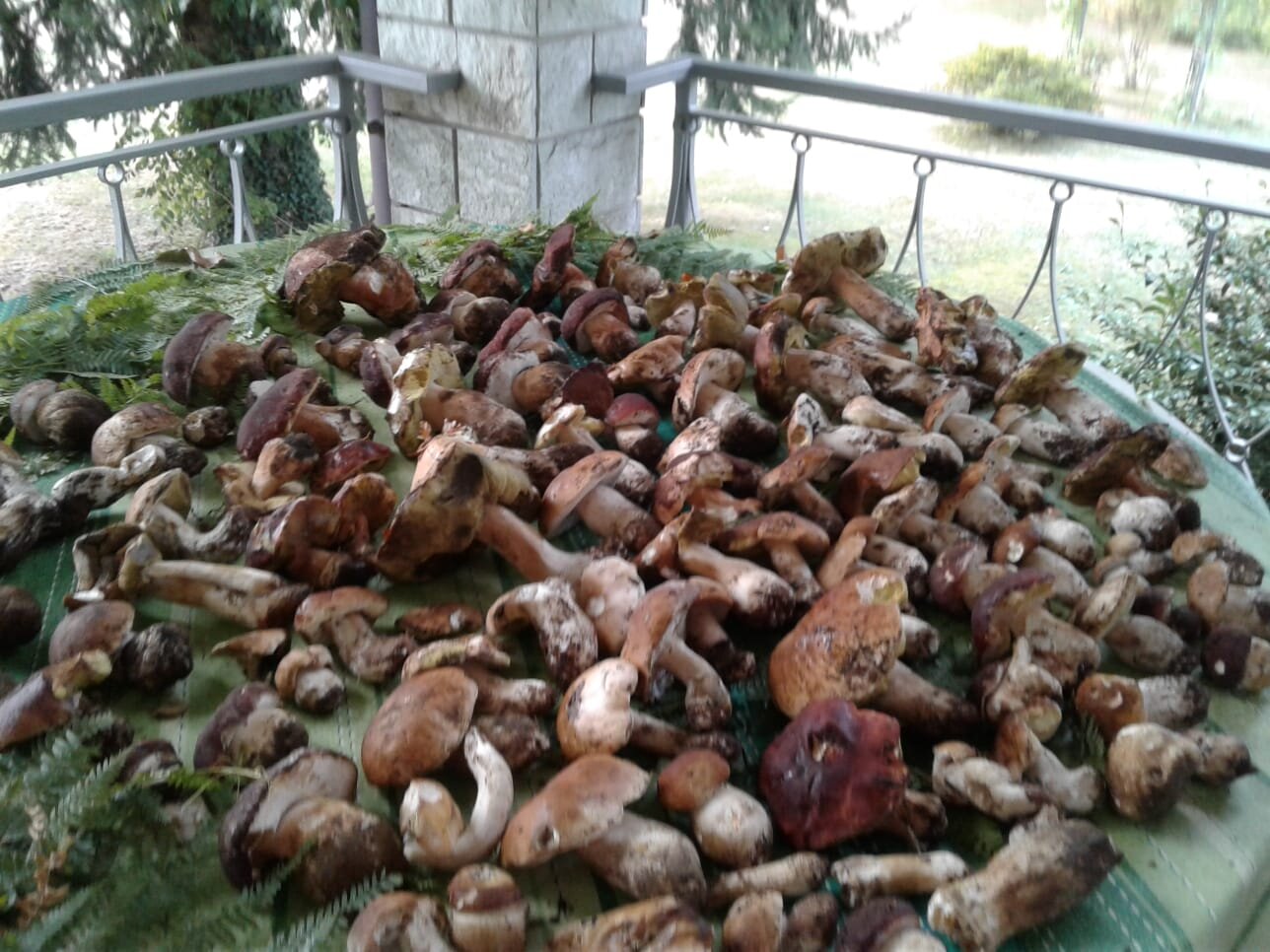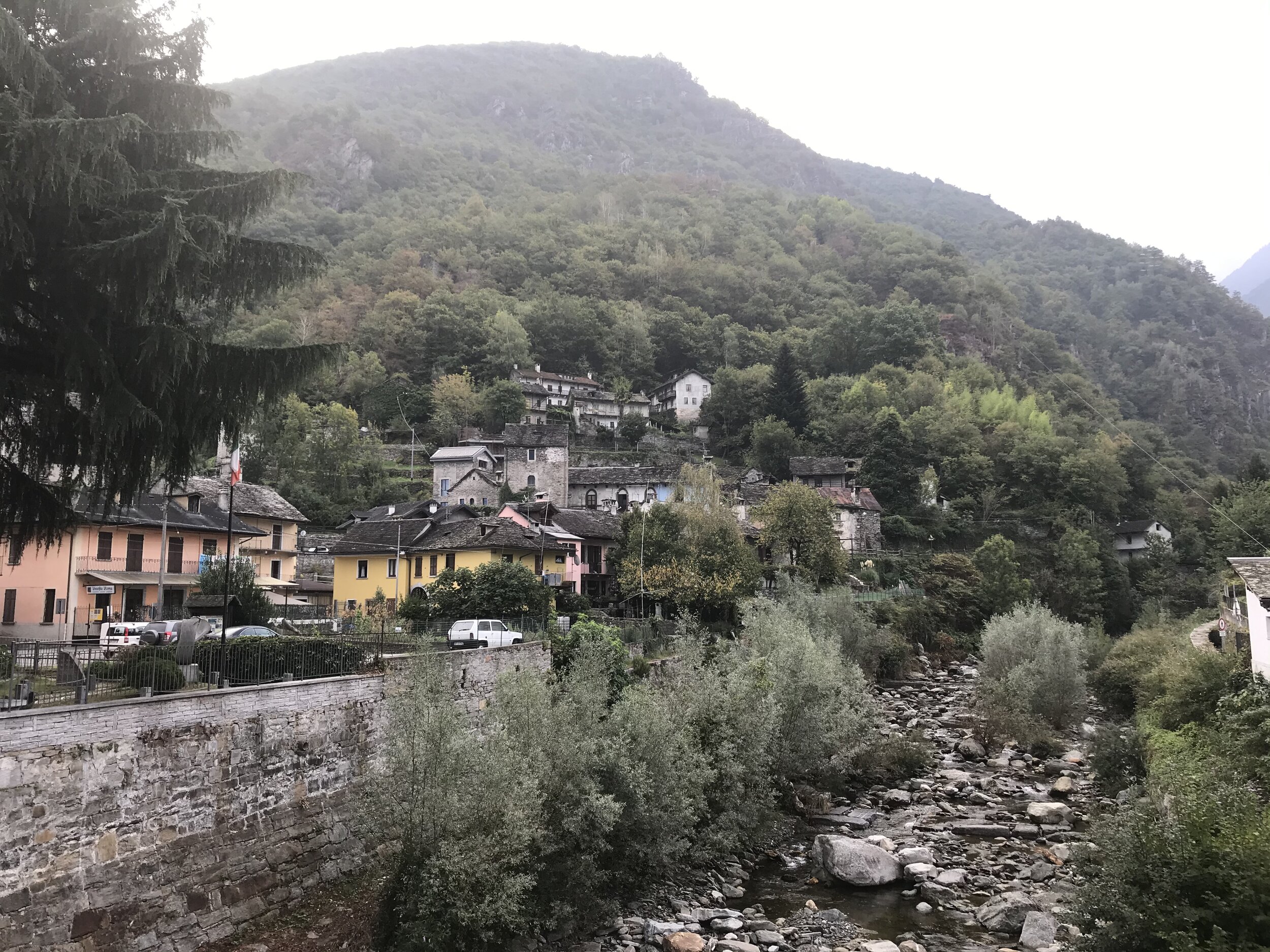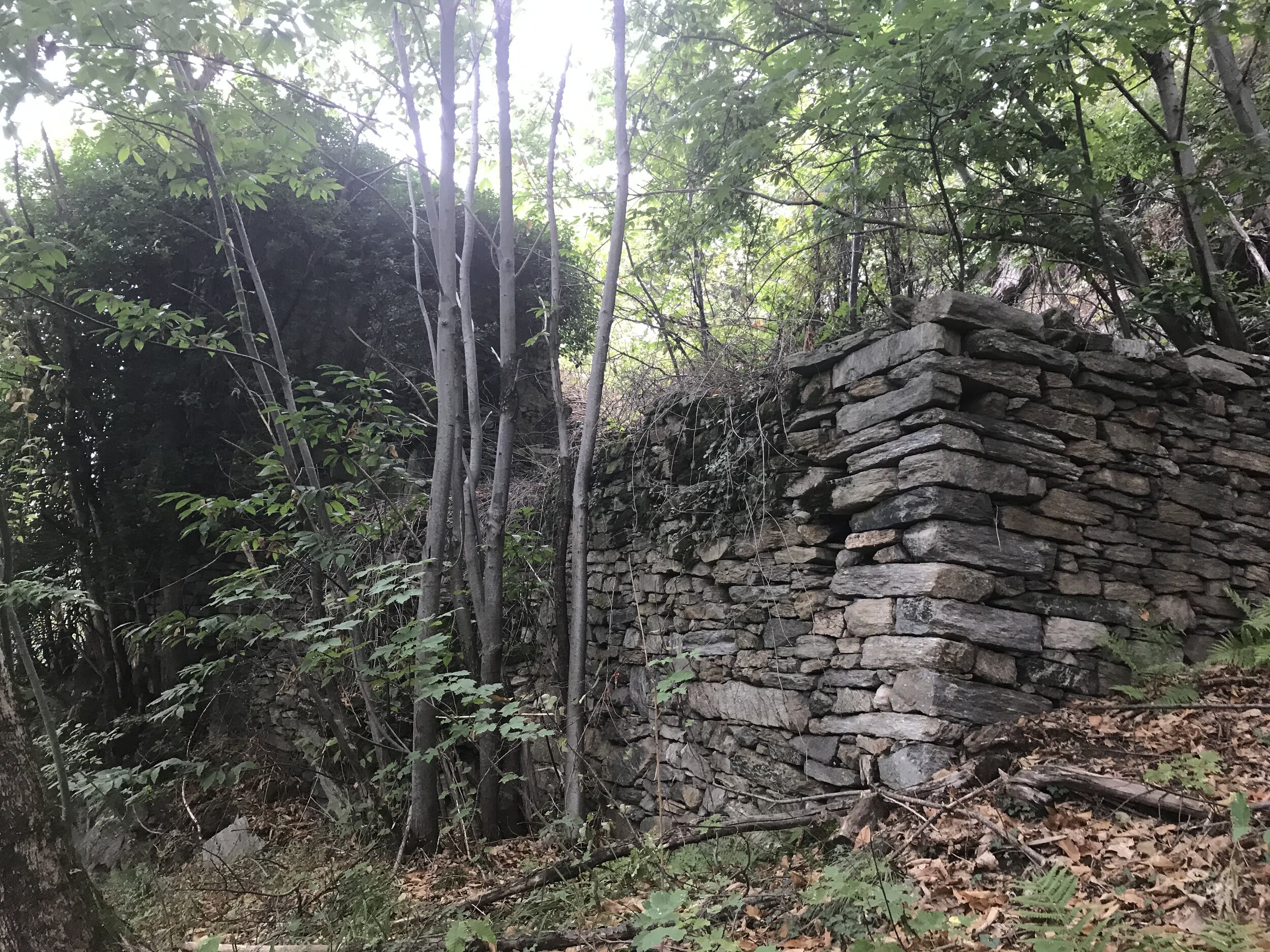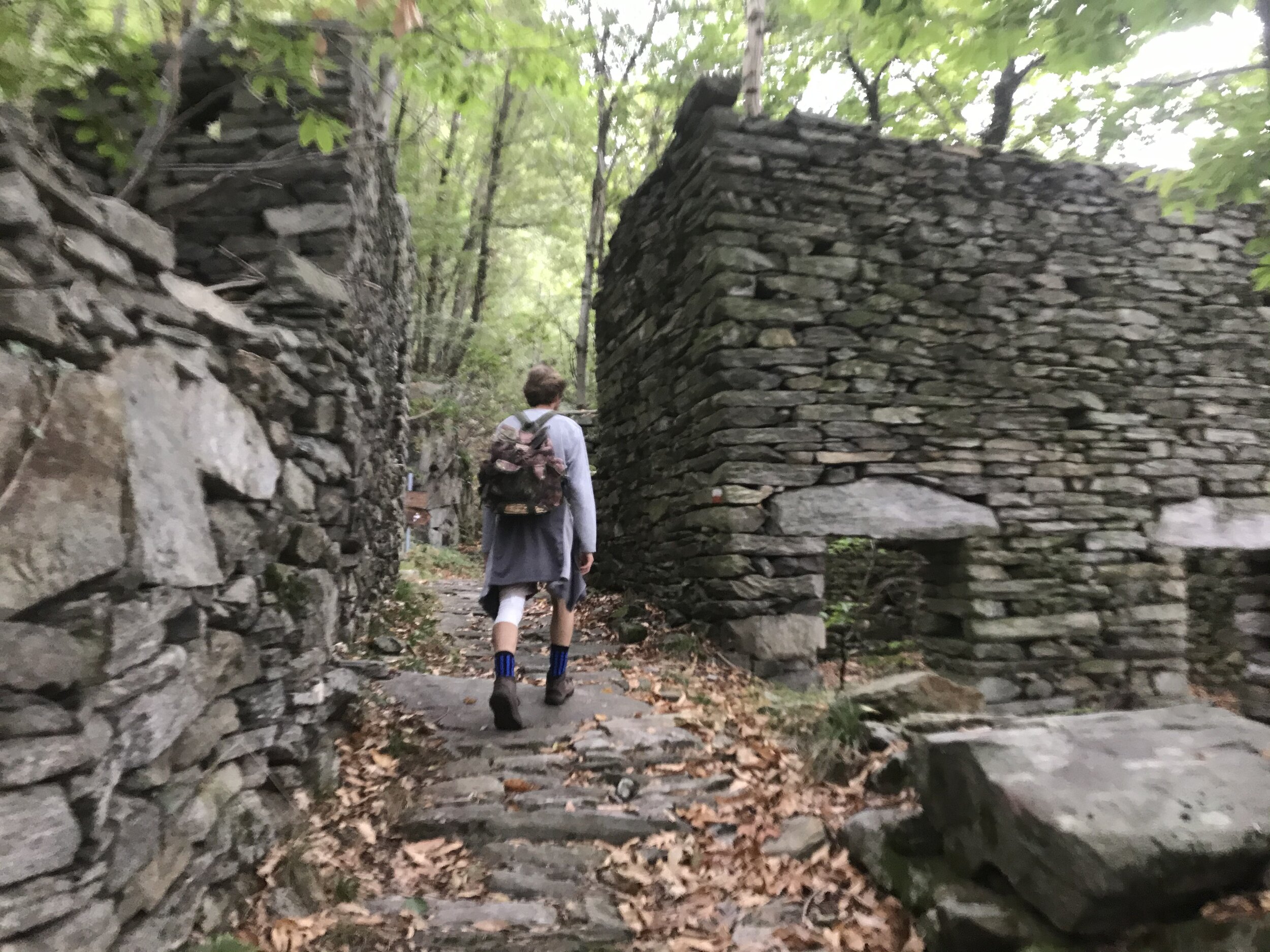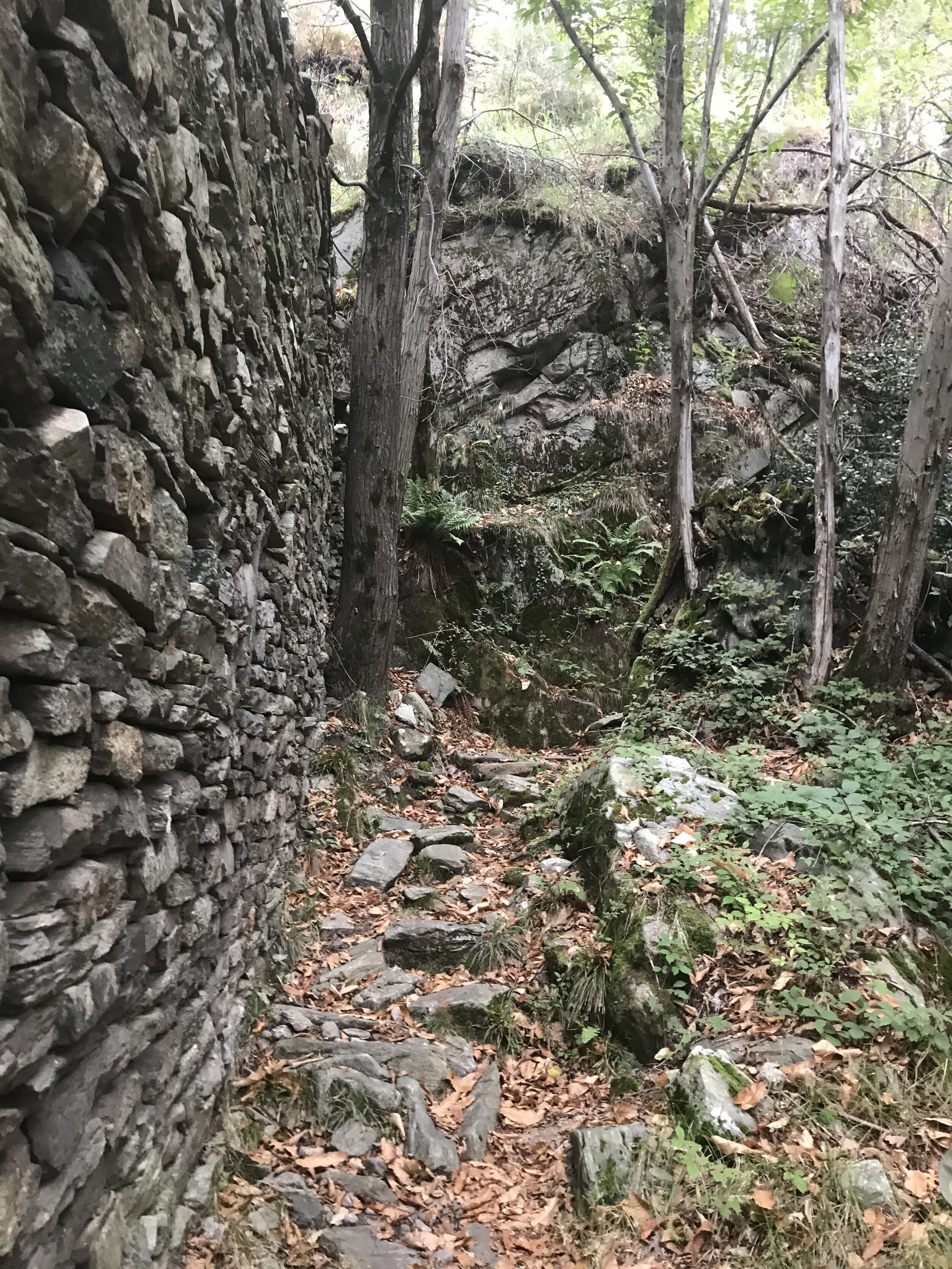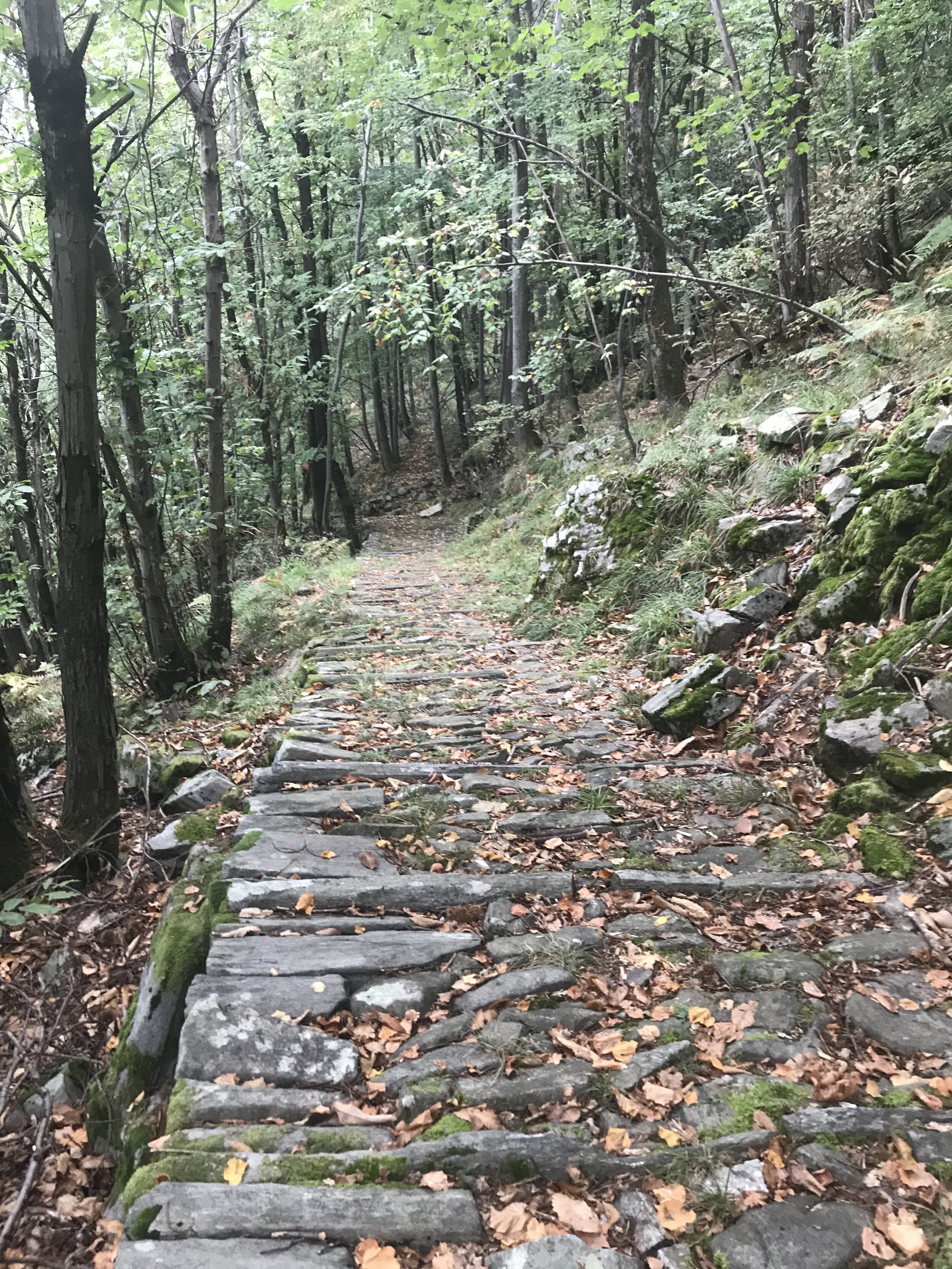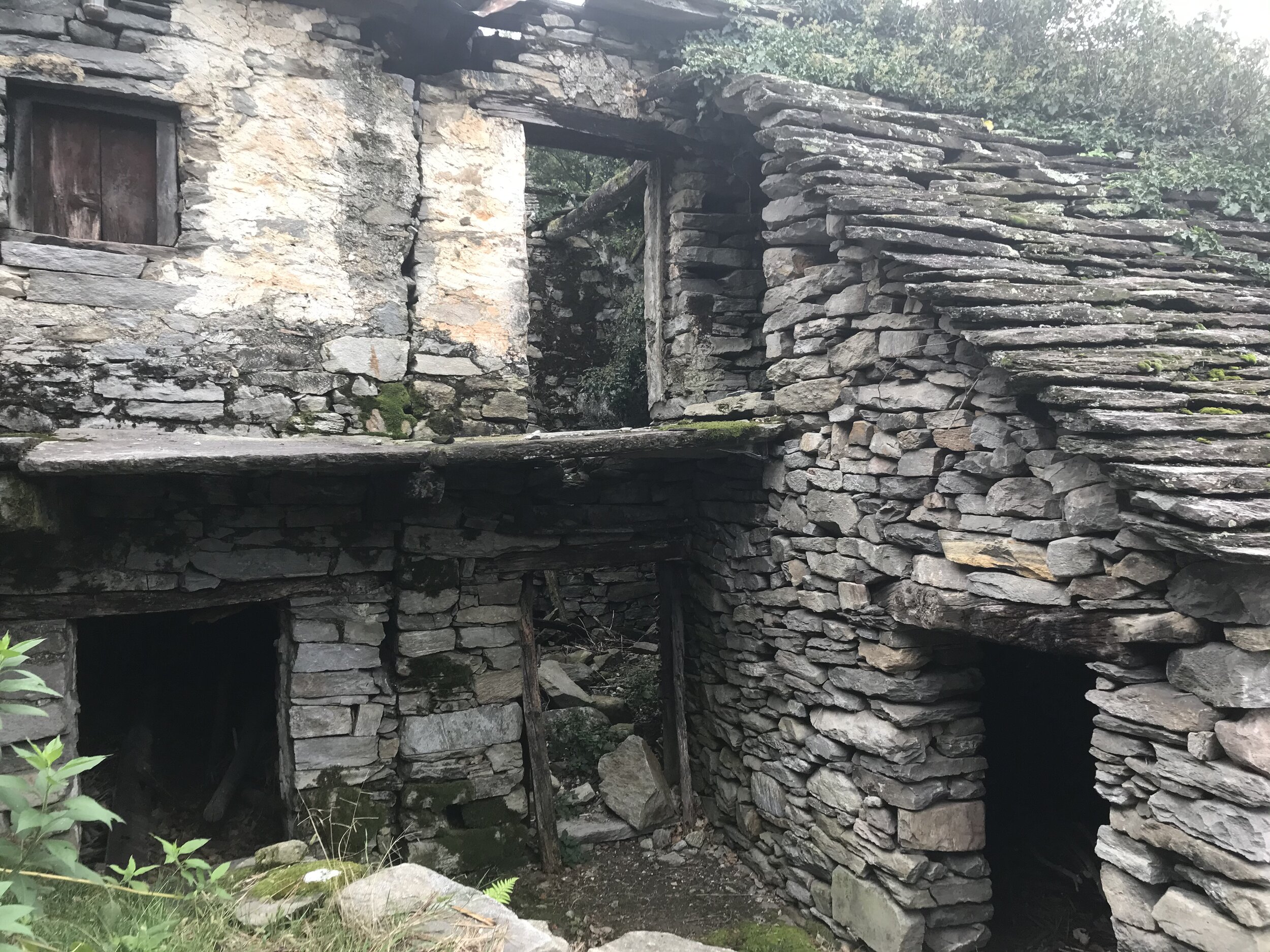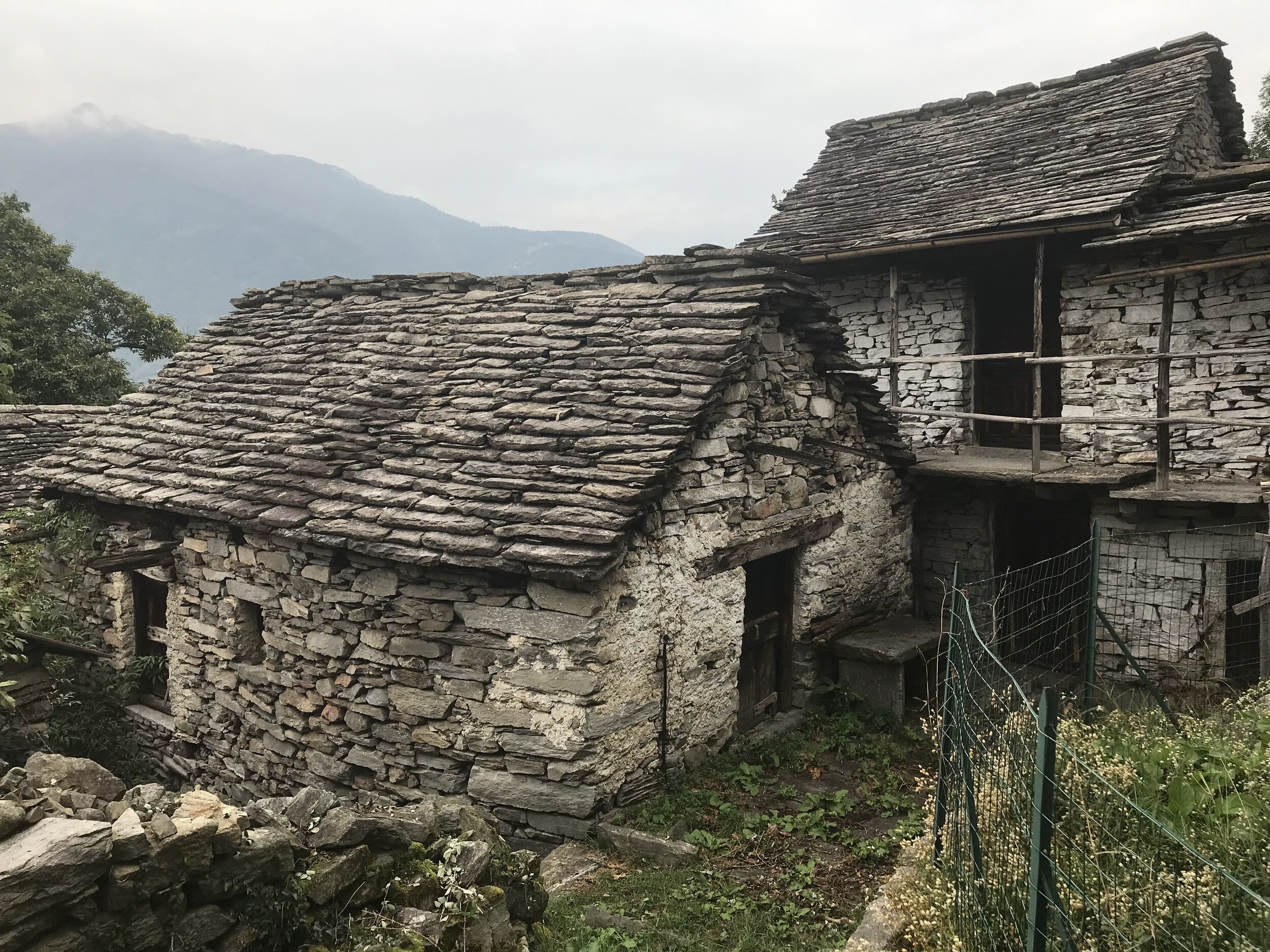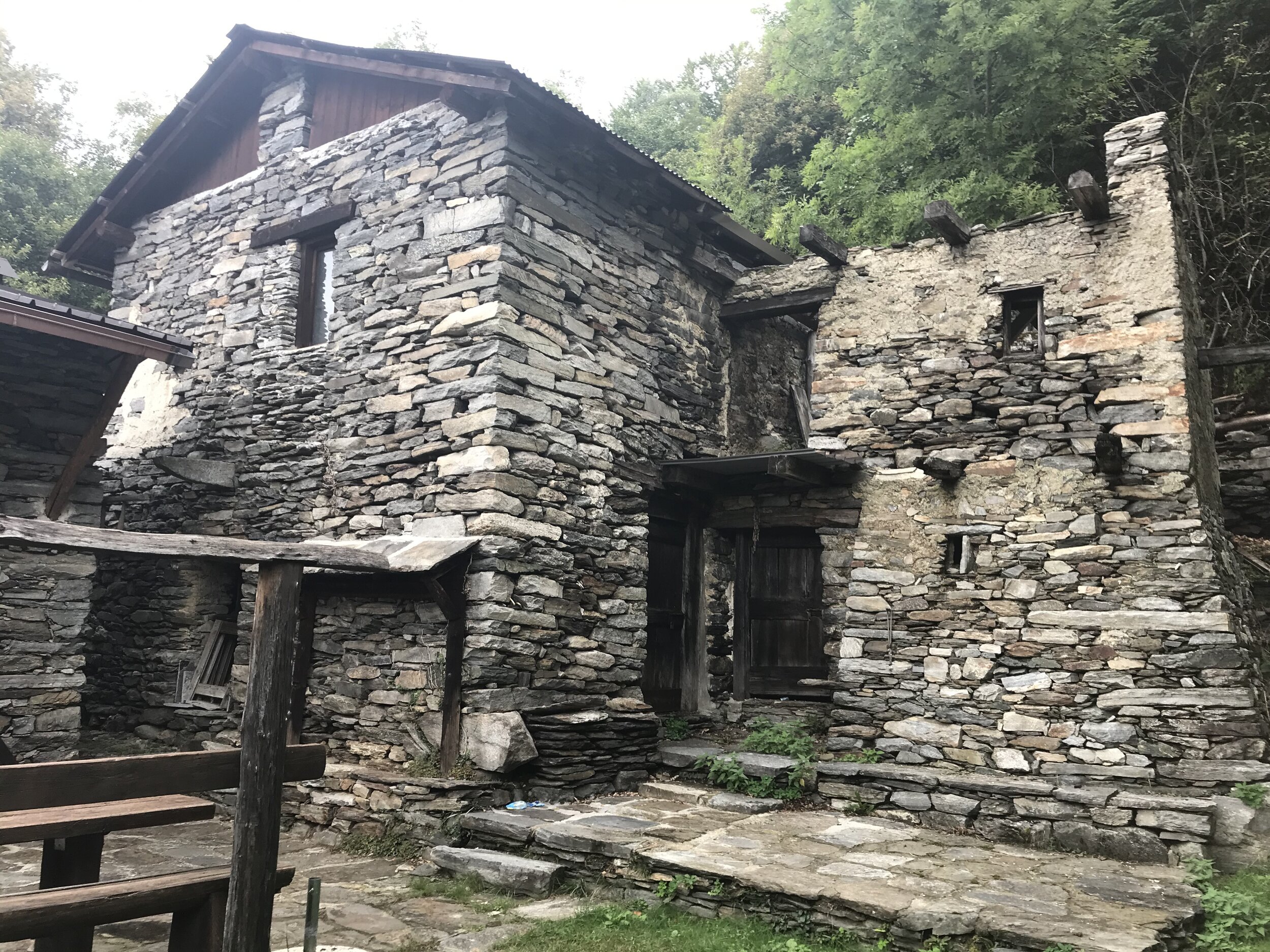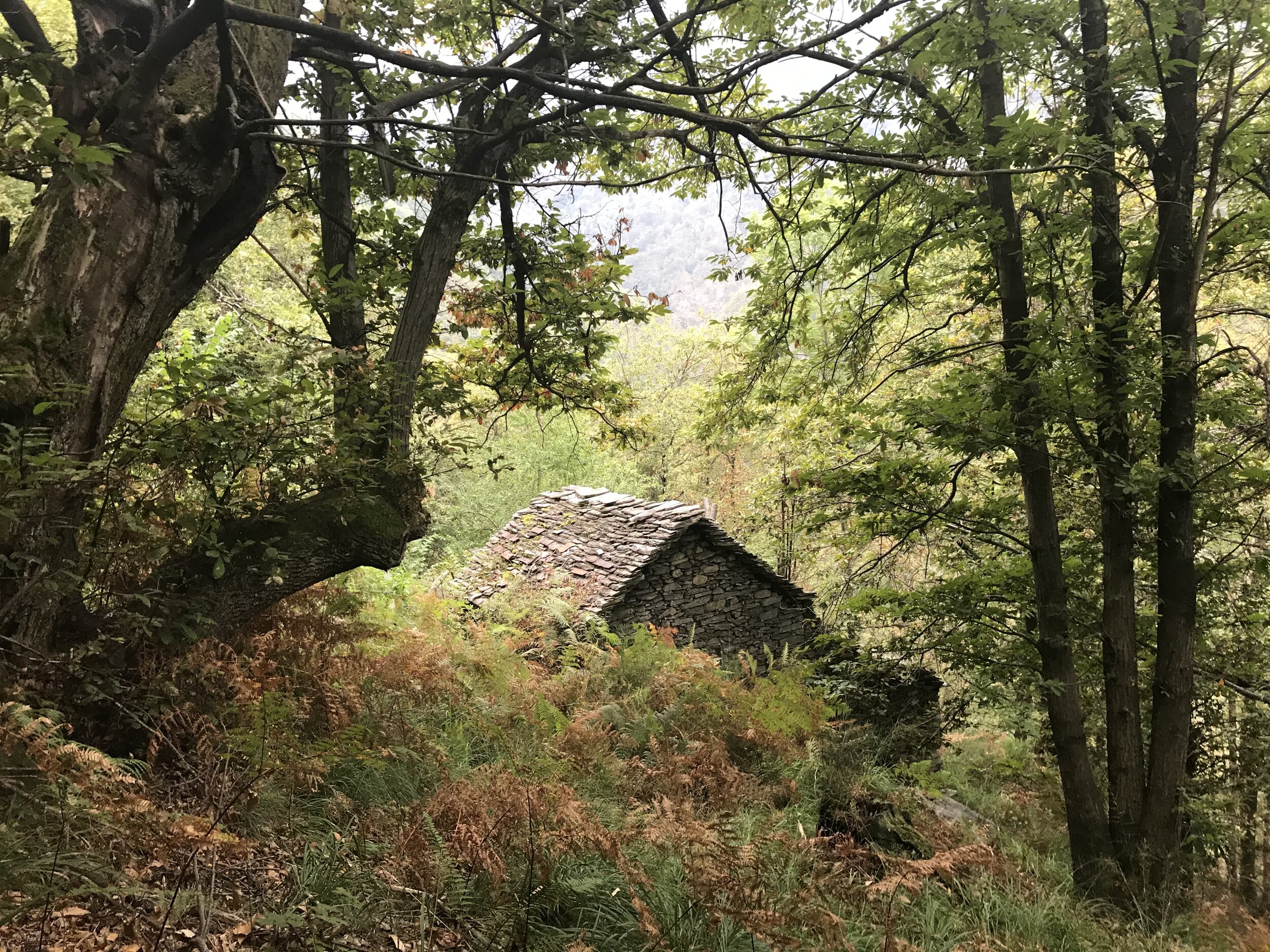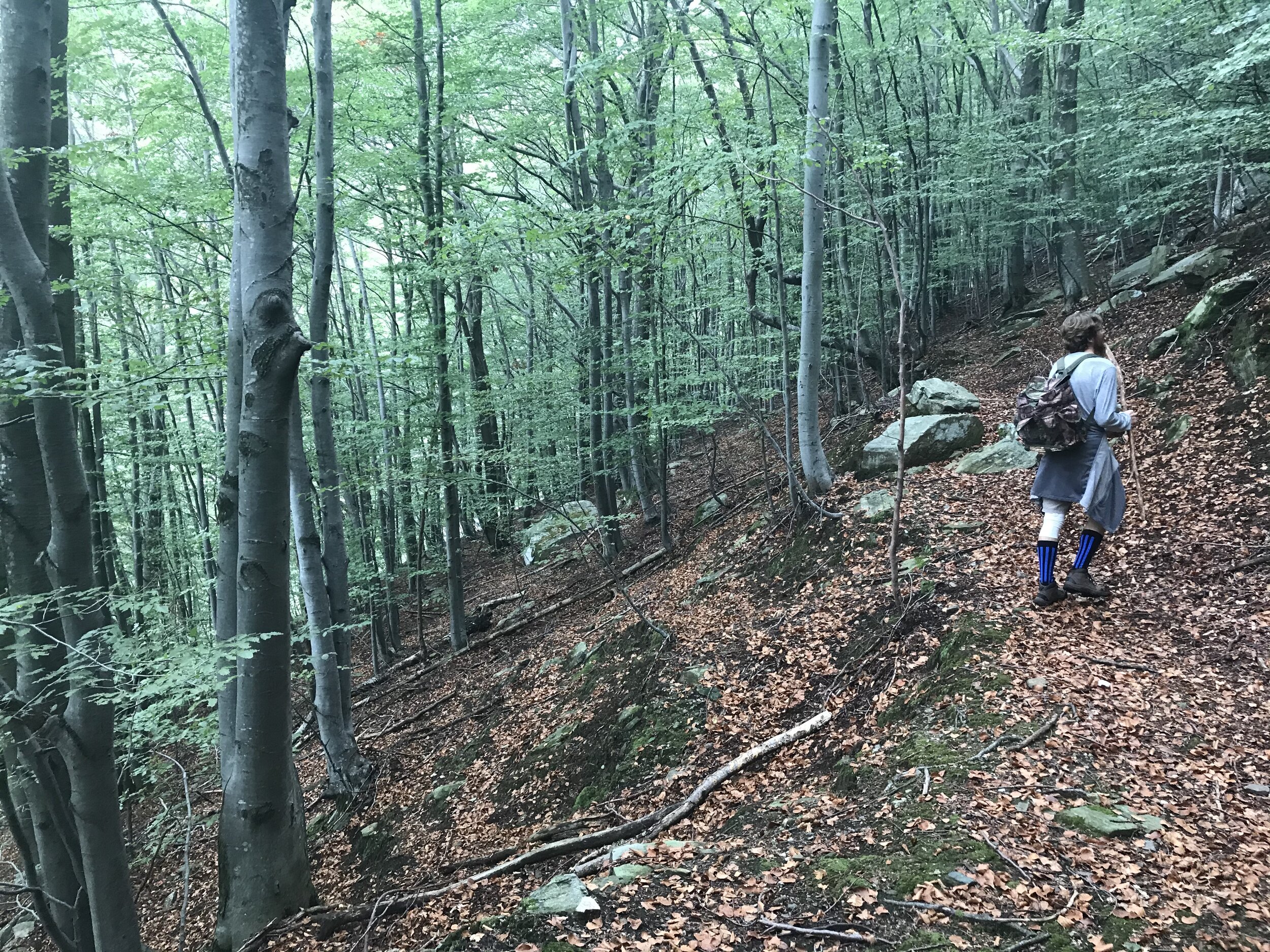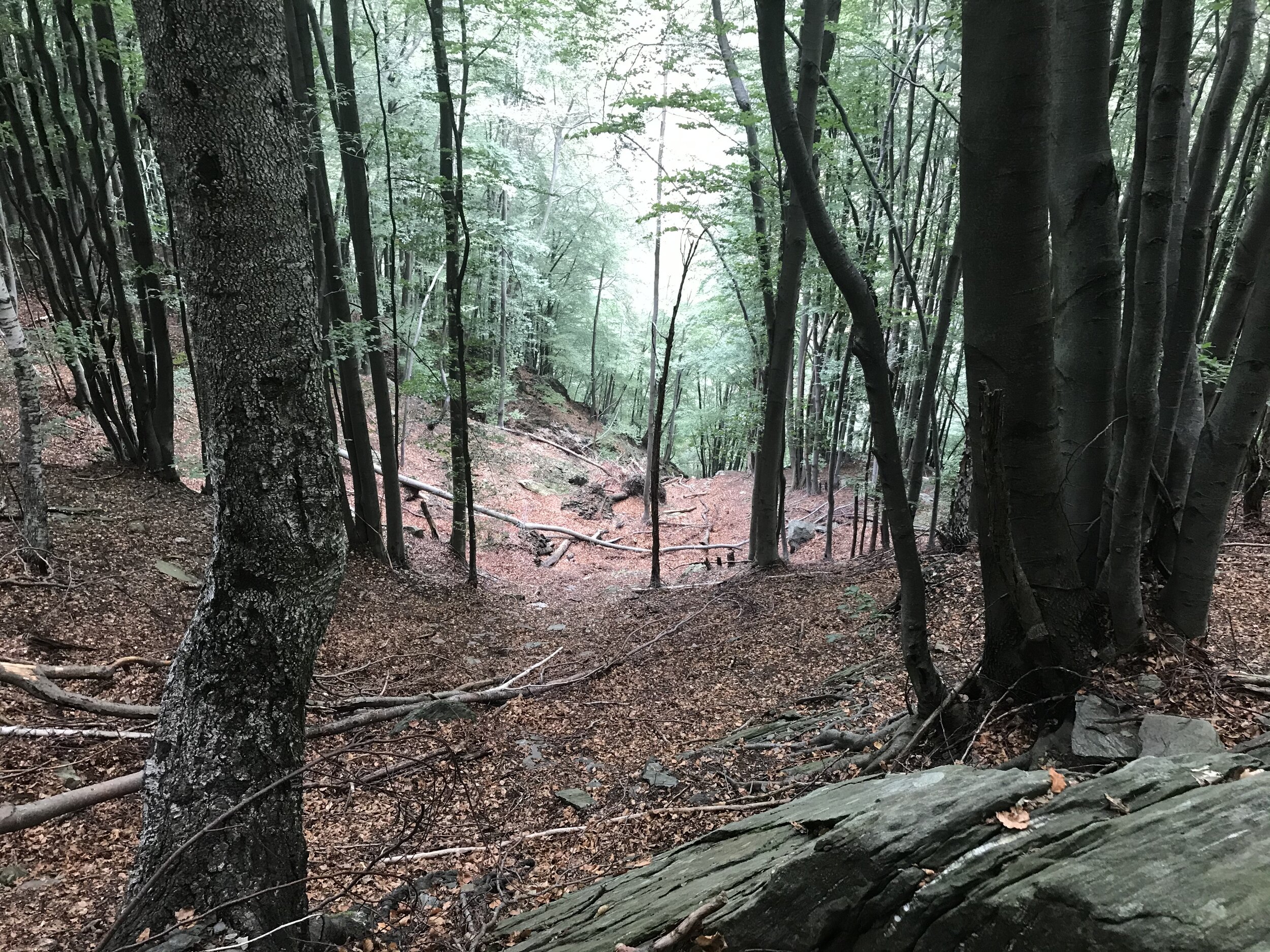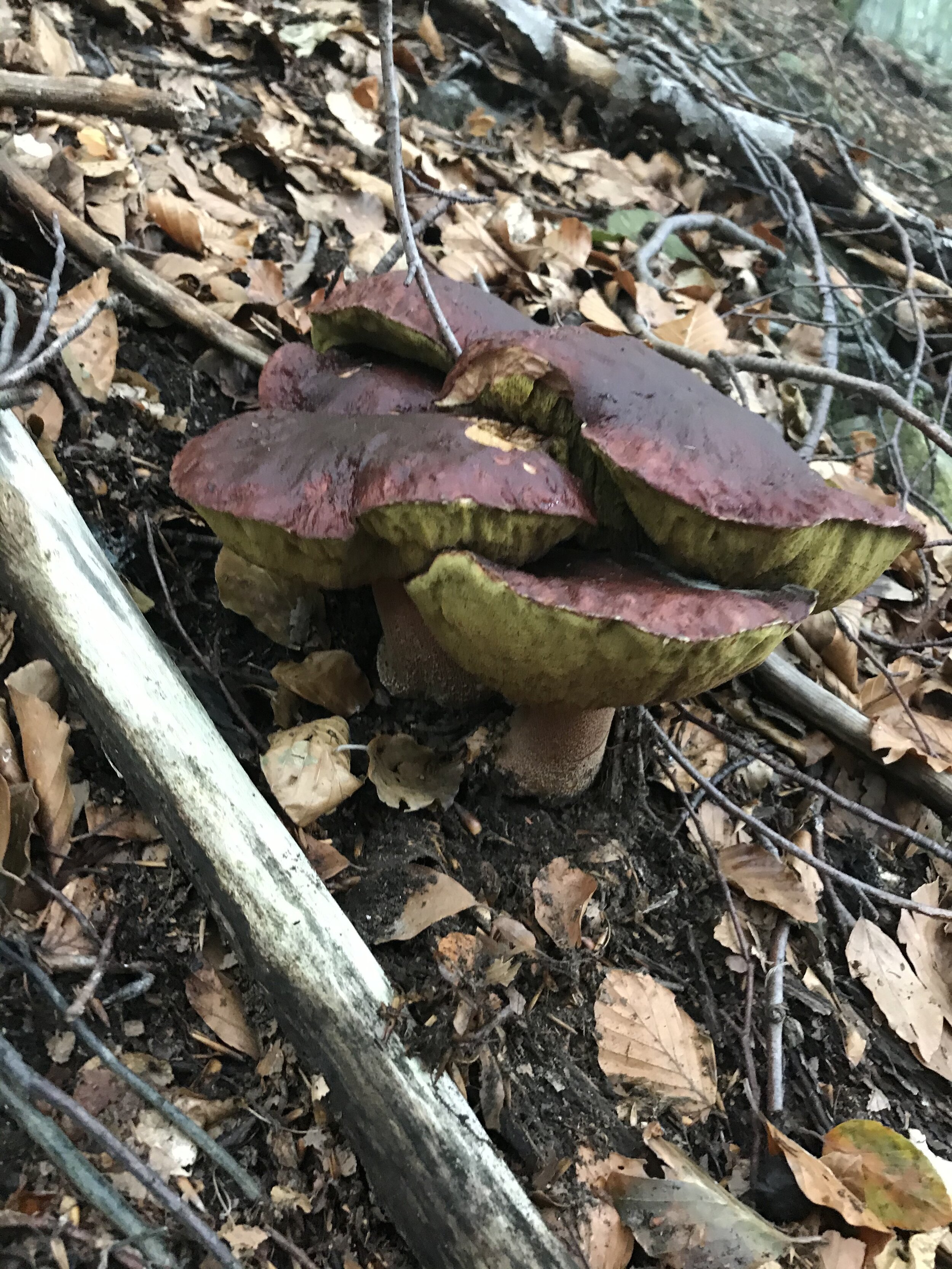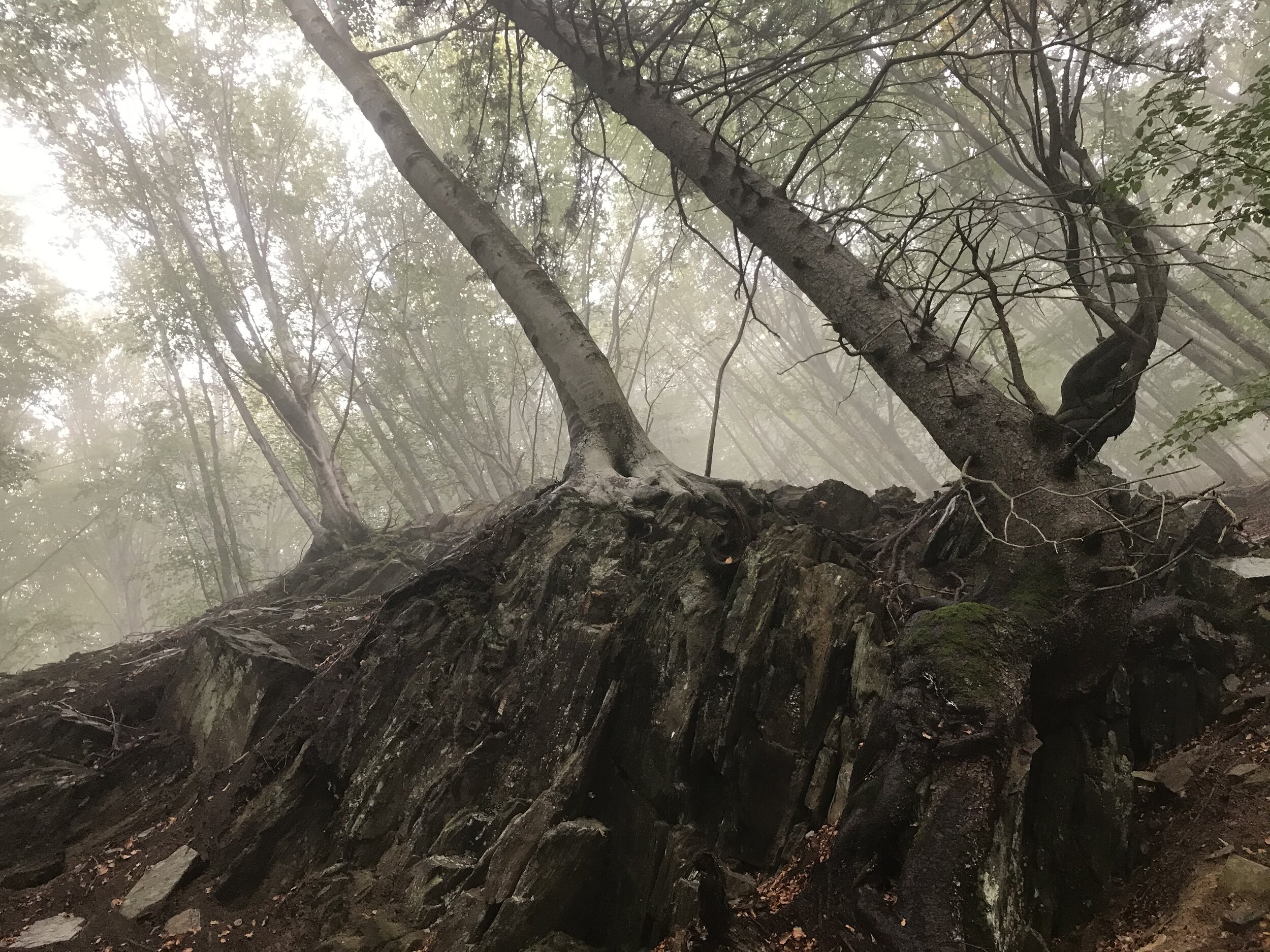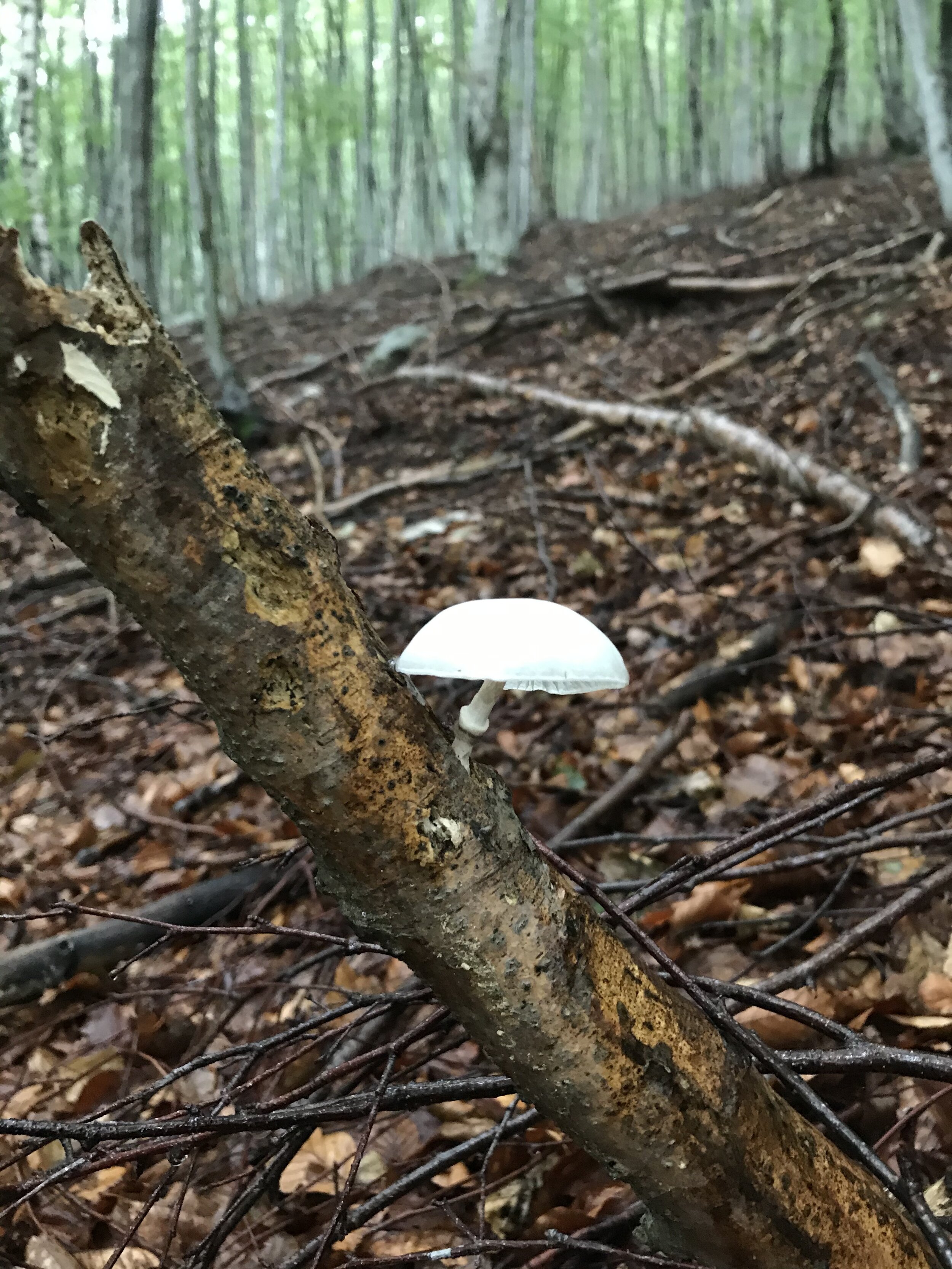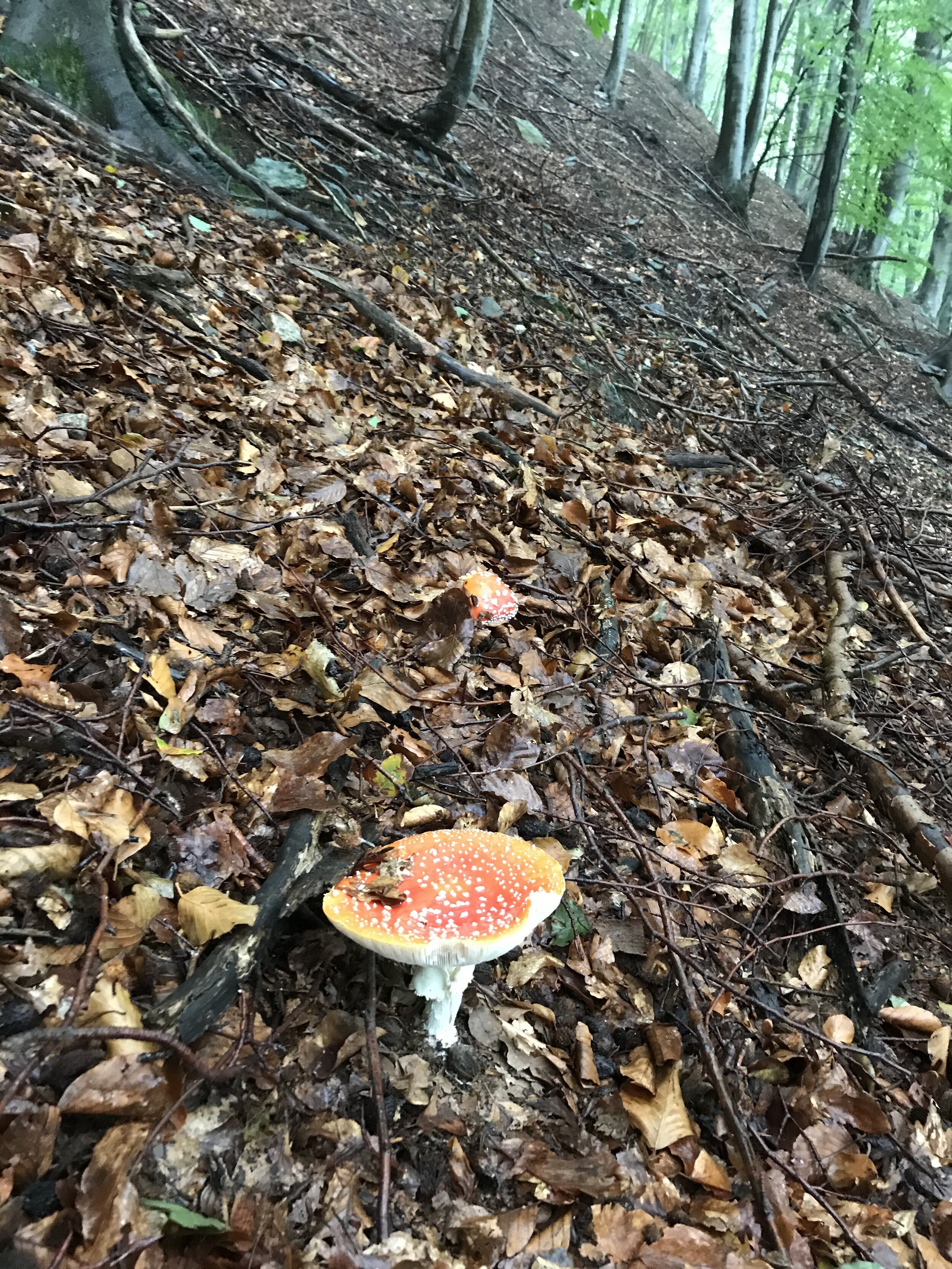On a gloomy, cloudy morning in the Italian region of Piemonte, I climbed into a car with my uncle in law to visit the mountains in front of the famous Italian national park of Valgrande, and behind a small mountain village totally absent of any kind of tourists. The village, the name of which for reasons to become clearer later I will not reveal, I will call Pallet town, was a premier mushroom hunting destination that was also a well-kept secret among the men of the Braghini family. Pallet town is situated in a remarkable part of northern Piemonte characterized by a large river colored turquoise from the dust of stone quarrying, running along the floor of an immense valley next to a highway. The exits off this extraordinary road, flanked either side by towering alpe will all take you into mountain villages where the roofs are made from pietra, or stone, normally a kind of gneiss. One such exit my uncle in law, a monk of the Franciscan order and avid mushroom hunter, took in the early morning. We were on our way to hunt for Porcini mushrooms, which uncle Paolo explained to me grow high up in the mountains; the best ones growing where few people have the stamina to reach. He also explained, like a wizard explaining an alchemical formula, how there must be adequate rainfall preceding the few weeks when harvesting them is ideal, while any cold snaps could put a damper on their appearance. He concluded this mushroom brief by explaining they appear only after a certain phase of the moon has come and passed, language which I’m sure might as well have been considered magic-speak to anyone 100 kilometers away in the city center of Milan. So already feeling like I was in a fantasy novel – the best marker for the start of the traveler’s day, we headed up into the mountains with empty rucksacks and walking sticks.
Pallet Town is famous for the exports of its gneiss stone, it being of the highest building quality and used in monuments like the Christopher Columbus monument in New York City, and the Duomo in Milan. behind the village’s buildings lies a quite vertical path known as the path of stone, an extraordinary feat of basic engineering and stonework, the likes of which undoubtedly inspired Tolkien, which leads up into the mountainsides where entire dwarven villages of stone — some from before the First World War, others build much more recently, were abandoned. Here everything was made of stone – the patio tables and chairs, the roofs, the fences, the road signs, and the animal enclosures. The doors were just about the only thing not made of gneiss.
Eventually we climbed above the stone villages and into the damp old-growth beech and birch forests of the higher elevations – around 800 meters above sea level. I started seeing mushrooms, though they weren’t Porcini, but another species that often looked very similar, especially from the top, and especially when young, called Fari. Eventually though, we found our first Porcini, and I got a lesson in the 2 different species, where they sometimes grow, which ones are the most delicious, and how to best look for them. Explaining that it was his father, an enthusiast of wild foods, who brought him to the mountains to look for mushrooms when he was a kid and a young man, I felt ageless knowledge being passed down to me while at the same time having a ton of fun crisscrossing the forest slopes looking for mushrooms – one of the most charismatic woodland denizens without doubt. A ridgeline ran along the top of the slopes, and it was when had climbed about halfway up towards it that the rain swirling clouds overtook us for the rest of our stay.
There are moments in one’s life — the kind I’ve dedicated myself to finding — the kind that mathematician Eric Weinstein would call the portal, where all semblance of normal reality is changed and you find yourself stripped bare and having to rely on almost nothing but the intuitive instincts of your brain and the constitution in your limbs. This place, where you feel you’ve entered another world, like a fiction story, and as the clouds swirled around twisted trees, the rain making sweet music on their leaves while I plodded along looking for toadstools that grow at a certain elevation for 2 weeks out of the year having been beckoned forth from the fragrant bosom of the forest floor by the phases of the moon, I felt as if I had gone so far into the traveler’s realm of unfamiliarity that I might never return. Looking at the slimy toadstools covered in dirt and leaves and slugs, how anyone could believe they were a good thing to eat was properly beyond me, yet as I felt my backpack become heavier and heavier, I became more and more excited about all the different recipes I could make. Eventually our legs grew shakey, and we decided to return back down the mountain having gathered 14 kilograms of mushrooms, a ridiculous haul, outdone only by my uncle’s previous trip to the mountains when he and my brother in law returned with 31 kilograms.
